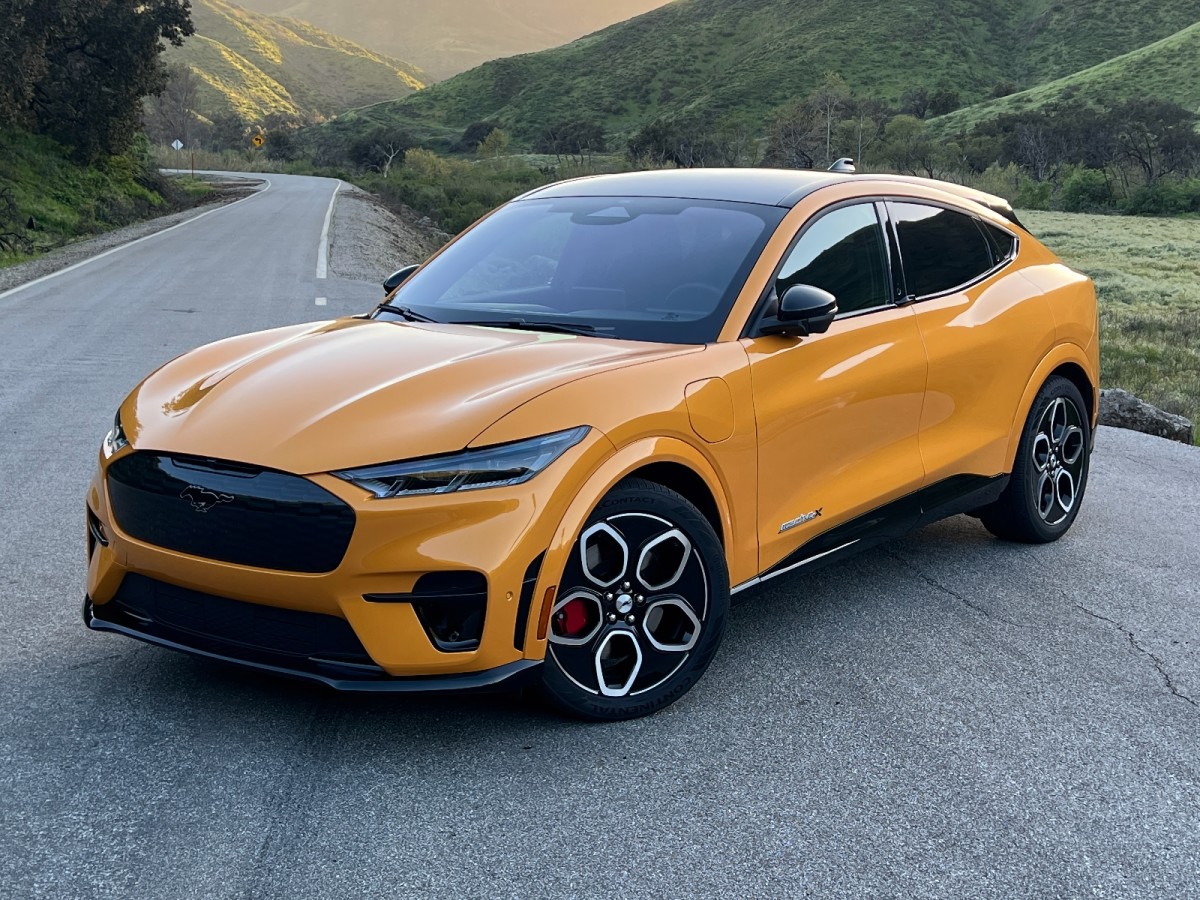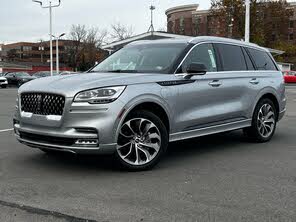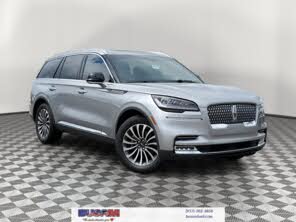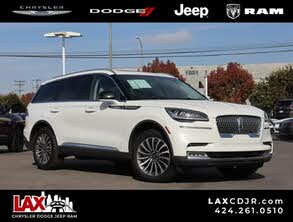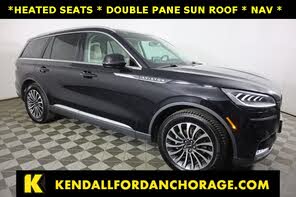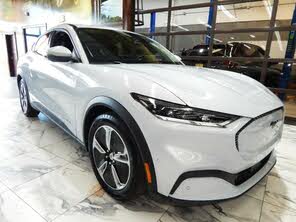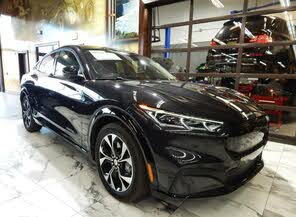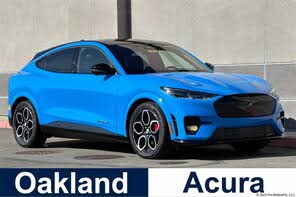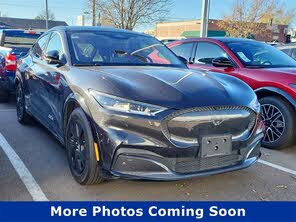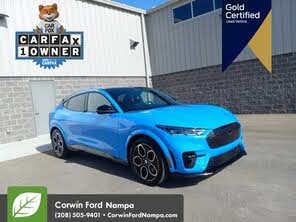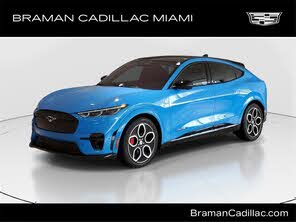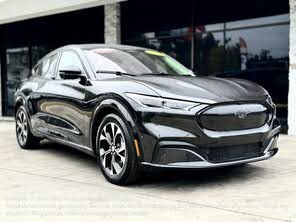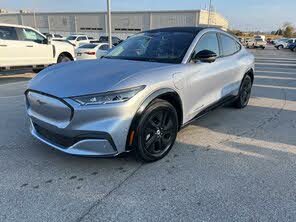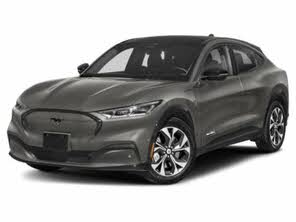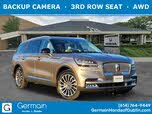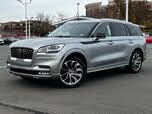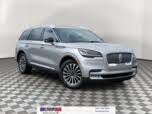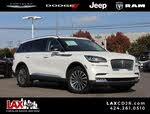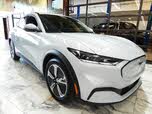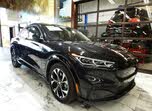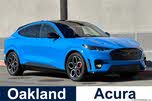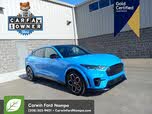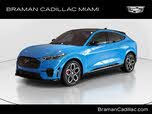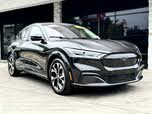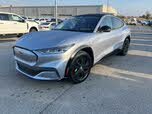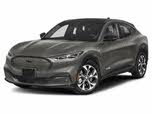2021 Lincoln Aviator vs 2022 Ford Mustang Mach-E
Overview | |
MSRP$50,660 | MSRP$43,895 |
Average price$41,061 | Average price$30,566 |
Listings493 | Listings238 |
Ratings & Reviews | |
User Reviews | User Reviews |
Expert reviews7.8 out of 10 | Expert reviews |
Pros
| |
2021 Lincoln Aviator Reviews SummaryOnly a few years ago, Lincoln was in a confusing space. Confusing because many of its cars overlapped with the nicest trims of vehicles from parent company Ford. It was also confusing because of the alphanumeric vehicle names. But Lincoln has ended both of those trends. First, Lincoln has returned to real names for its vehicles, such as the Corsair and Nautilus (Cadillac, are you listening?!). But what’s in a name? This rebranding would be moot without a compelling product. In this respect, the American luxury brand has delivered, highlighted by the 2021 Lincoln Aviator. This three-row midsize SUV boasts modern technology, potent drivetrain options, and creature comforts that you might sooner find in a high-end German luxury sedan. But this newfound quality comes with a steeper price tag. So is it worth consideration against the likes of the Audi Q7 and RX 350L? Read on to find out. | |
2022 Ford Mustang Mach-E Reviews Summary | |
No video found | No video found |
Popular Features & Specs | |
Engine3.0L 400 hp V6 | Engine266 hp Electric |
Drive TrainRWD | Drive TrainRWD |
Seating Capacity7 | Seating Capacity5 |
EV Battery Capacity | EV Battery Capacity70 kWh |
MPG City18 | MPG City110 |
MPG Highway26 | MPG Highway96 |
Battery Charge Time (240V) | Battery Charge Time (240V)14.1 hours |
Engine | |
Engine Name3.0L 400 hp V6 | Engine Name266 hp Electric |
Battery Charge Time (240V) | Battery Charge Time (240V)14.1 hours |
DrivetrainRWD | DrivetrainRWD |
Fuel Economy | |
EV Battery Capacity | EV Battery Capacity70 kWh |
MPG City18 | MPG City110 |
MPG Highway26 | MPG Highway96 |
Interior | |
Seating Capacity7 | Seating Capacity5 |
Key Features | |
Navigation System | Navigation SystemStandard |
Safety | |
Front Crash Overall5 | Front Crash Overall |
Side Crash Overall5 | Side Crash Overall5 |
Dimensions & Capacity | |
Cargo Space18.3 cu ft | Cargo Space34.4 cu ft |
Curb Weight4745 lbs | Curb Weight4318 lbs |
Height69.6 in | Height64.0 in |
Length199.3 in | Length185.6 in |
Width89.9 in | Width74.1 in |
Wheelbase119.1 in | Wheelbase117.5 in |
Maximum Payload1615 lbs | Maximum Payload |
Number of doors4 | Number of doors4 |
Overview | ||
MSRP | $50,660 | $43,895 |
Average price | $41,061 | $30,566 |
Listings | ||
Ratings & Reviews | ||
User reviews | ||
Expert reviews | 7.8 out of 10Read full review | |
Pros & cons | Pros
| |
Summary | Only a few years ago, Lincoln was in a confusing space. Confusing because many of its cars overlapped with the nicest trims of vehicles from parent company Ford. It was also confusing because of the alphanumeric vehicle names. But Lincoln has ended both of those trends. First, Lincoln has returned to real names for its vehicles, such as the Corsair and Nautilus (Cadillac, are you listening?!). But what’s in a name? This rebranding would be moot without a compelling product. In this respect, the American luxury brand has delivered, highlighted by the 2021 Lincoln Aviator. This three-row midsize SUV boasts modern technology, potent drivetrain options, and creature comforts that you might sooner find in a high-end German luxury sedan. But this newfound quality comes with a steeper price tag. So is it worth consideration against the likes of the Audi Q7 and RX 350L? Read on to find out. | |
Video | No video found | No video found |
Popular Features & Specs | ||
Engine | 3.0L 400 hp V6 | 266 hp Electric |
Drive Train | RWD | RWD |
Seating Capacity | 7 | 5 |
EV Battery Capacity | 70 kWh | |
MPG City | 18 | 110 |
MPG Highway | 26 | 96 |
Battery Charge Time (240V) | 14.1 hours | |
Engine | ||
Engine Name | 3.0L 400 hp V6 | 266 hp Electric |
Battery Charge Time (240V) | 14.1 hours | |
Drivetrain | RWD | RWD |
Fuel Economy | ||
EV Battery Capacity | 70 kWh | |
MPG City | 18 | 110 |
MPG Highway | 26 | 96 |
Interior | ||
Seating Capacity | 7 | 5 |
Key Features | ||
Navigation System | Standard | |
Safety | ||
Front Crash Overall | 5 | |
Side Crash Overall | 5 | 5 |
Dimensions & Capacity | ||
Cargo Space | 18.3 cu ft | 34.4 cu ft |
Curb Weight | 4745 lbs | 4318 lbs |
Height | 69.6 in | 64.0 in |
Length | 199.3 in | 185.6 in |
Width | 89.9 in | 74.1 in |
Wheelbase | 119.1 in | 117.5 in |
Maximum Payload | 1615 lbs | |
Number of doors | 4 | 4 |

By: CarGurus + AI
At CarGurus, our team of experienced automotive writers remain at the heart of our content operation, conducting hands-on car tests and writing insightful guides that are backed by years of industry experience. To complement this, we are harnessing AI to make our content offering more diverse and more helpful to shoppers than ever. To achieve this, our AI systems are based exclusively on CarGurus content, ratings and data, so that what we produce is both unique to CarGurus, and uniquely helpful to car shoppers.

